Focus
Your Present Location: HOME> Focus-
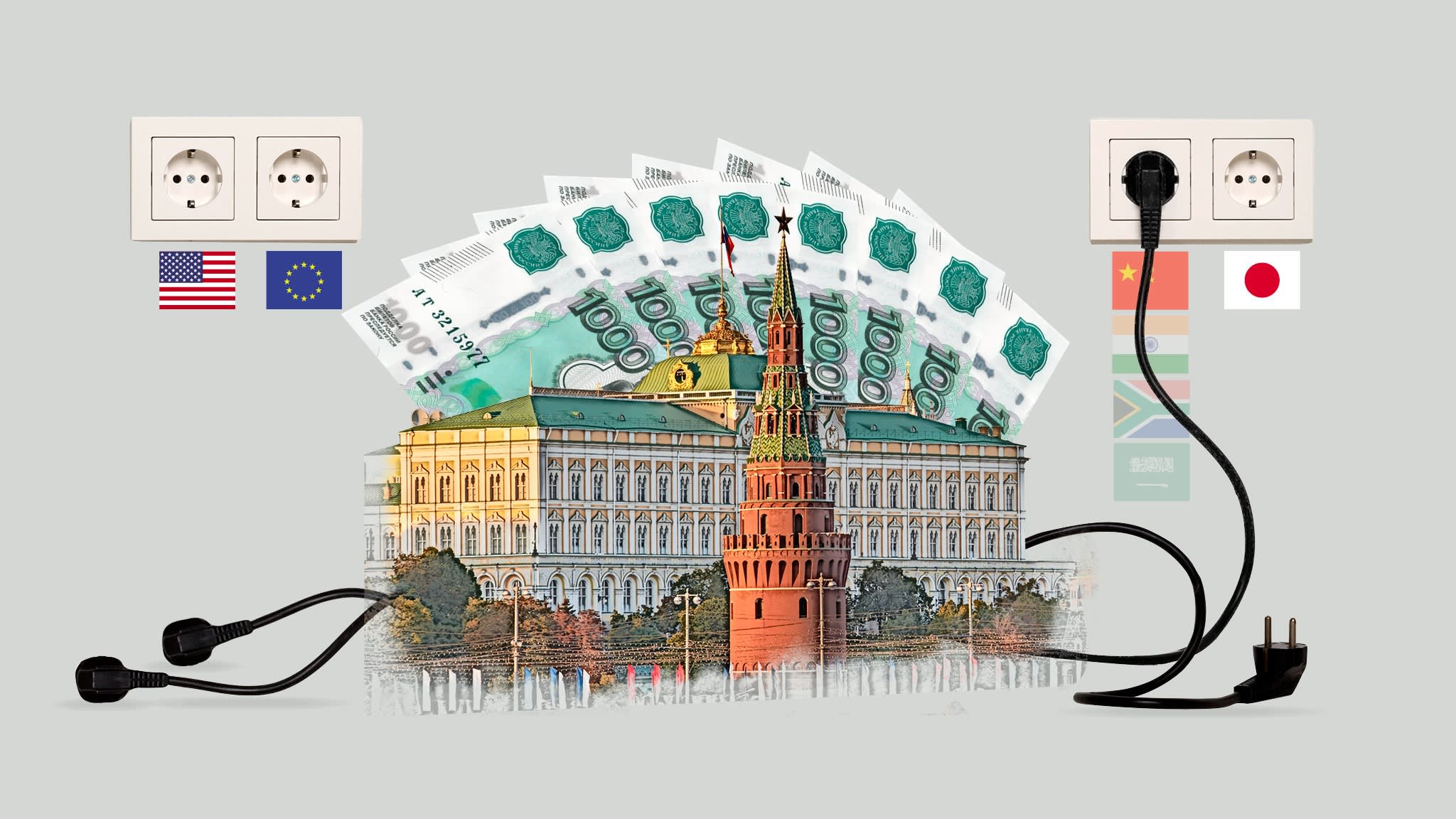
Zhang Yanling: Financial warfare: will there be a backlash against the dollar?
Two weeks after Russian tanks rolled into Ukraine, South African president Cyril Ramaphosa held a phone call with Russia’s Vladimir Putin. On the same day, European leaders meeting in Versailles warned democracy itself was at stake. Yet Ramaphosa struck a very different tone.
2022-04-12 -
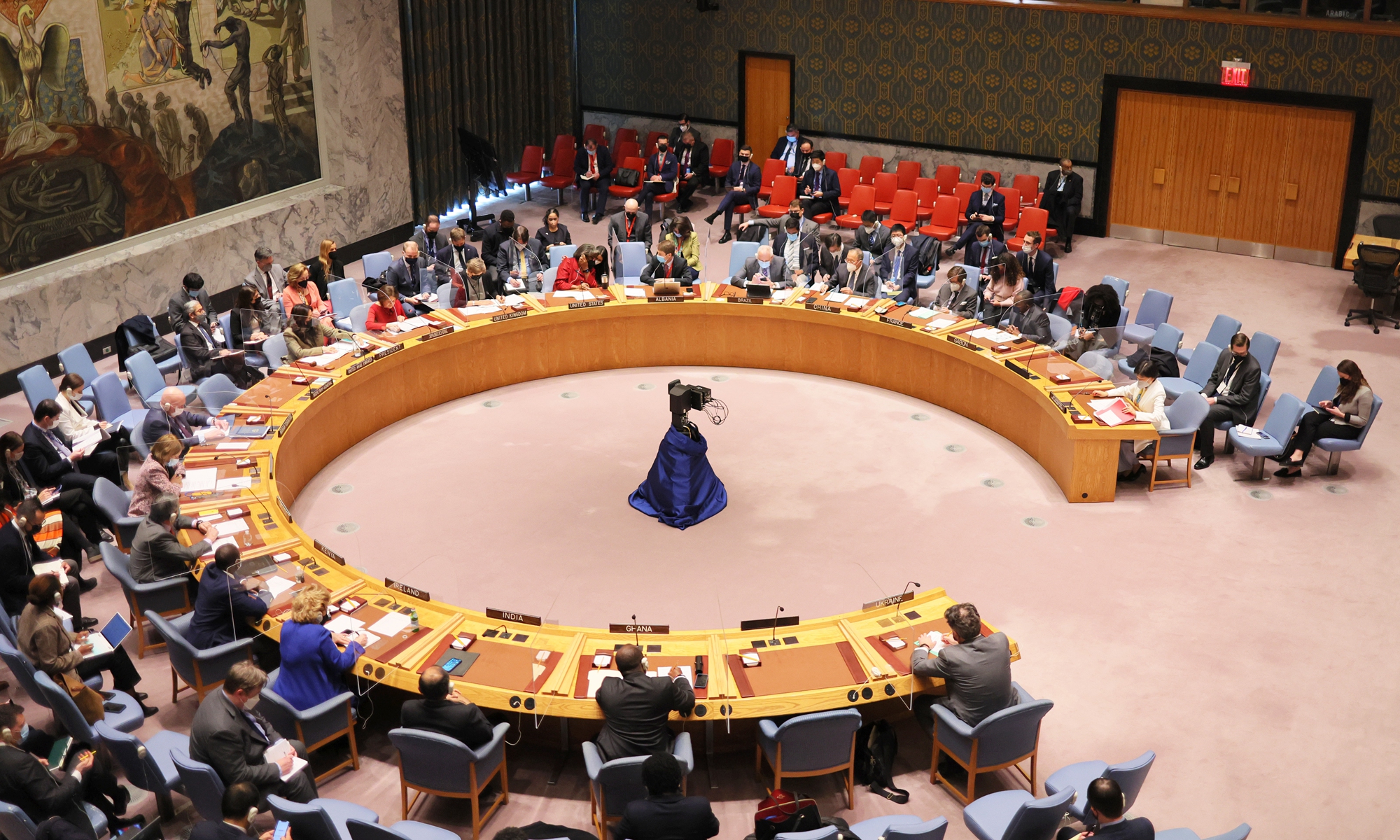
Wang Yiwei: US shuns UN meeting on biological security to 'cover up guilt conscience'
When Russia, China and other countries expressed their concerns over US biological activities in countries including Ukraine at a UN Security Council meeting on Wednesday, the US did not show up, which in some Chinese experts' eyes, was out of the US' "guilty conscience" over the issue.
2022-04-11 -
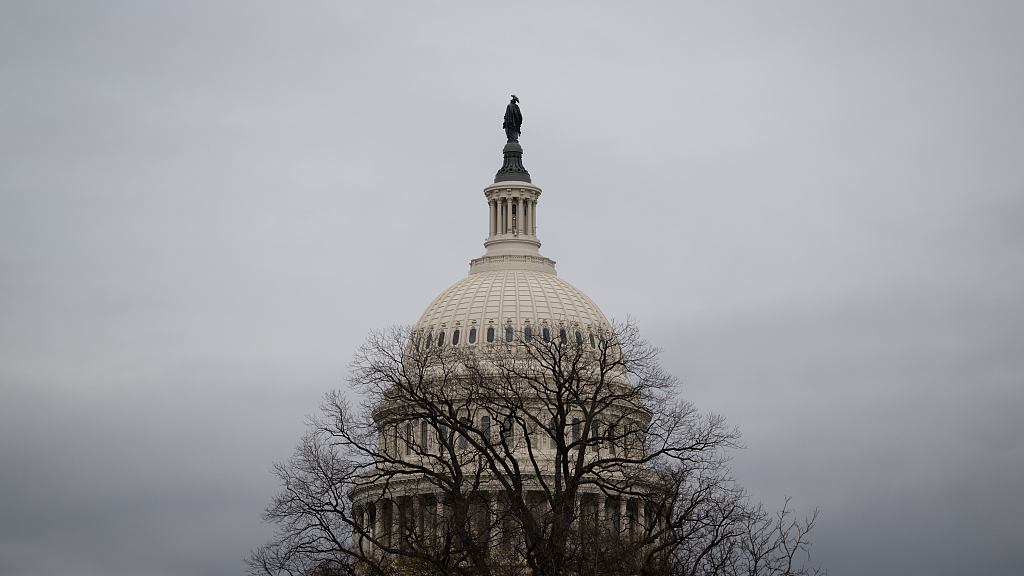
William Jones: Sanctions: a form of war with its own casualties
The response of the world to the Russian "special military operation" in Ukraine has been to increase the flow of military equipment to the Ukrainian forces, thereby assuring the continuation of hostilities, and to impose absolutely draconian sanctions on Russia. Sanctions have been the preferred mode of operation in this crisis by the U.S. and NATO, since they are not prepared to engage militarily for fear of pushing the conflict to the nuclear threshold. But sanctions have their own "deadly force" and their own "collateral damage."
2022-04-11 -

Djoomart Otorbaev: Will sanctions on Russia derail the Eurasian rail route?
Sanctions on Russia, imposed by Western countries due to its "special military operation" in Ukraine pose a massive threat to the development and very existence of the Eurasian railway route connecting China with Europe. All countries along the route have analyzed the potential negative consequences of restrictions and possible suspensions of operations. There is a global rethinking of regional development, security and investment strategies. Many agree that Kazakhstan will feel the most severe long-term consequences of a restriction or suspension of the logistics chain.
2022-04-11 -
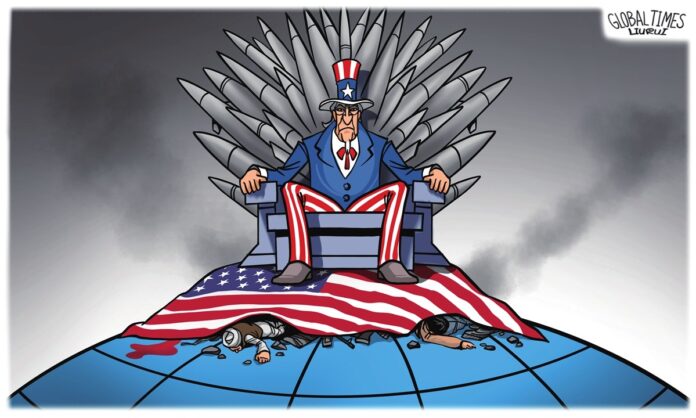
Martin Jacques: U.S. Cold War mentality undermines international security cooperation
2022-04-11 -

Zamir Ahmed Awan: US makes attempted moves to further provoke China over Taiwan issue
According to Western media reports, US House Speaker Nancy Pelosi is scheduled to visit Taiwan on Sunday following a visit to Japan. Although Nancy Pelosi tested positive for COVID-19 on Thursday and had to postpone her Asia tour, China remains seriously concerned and has expressed its strong opposition to her plans.
2022-04-11 -
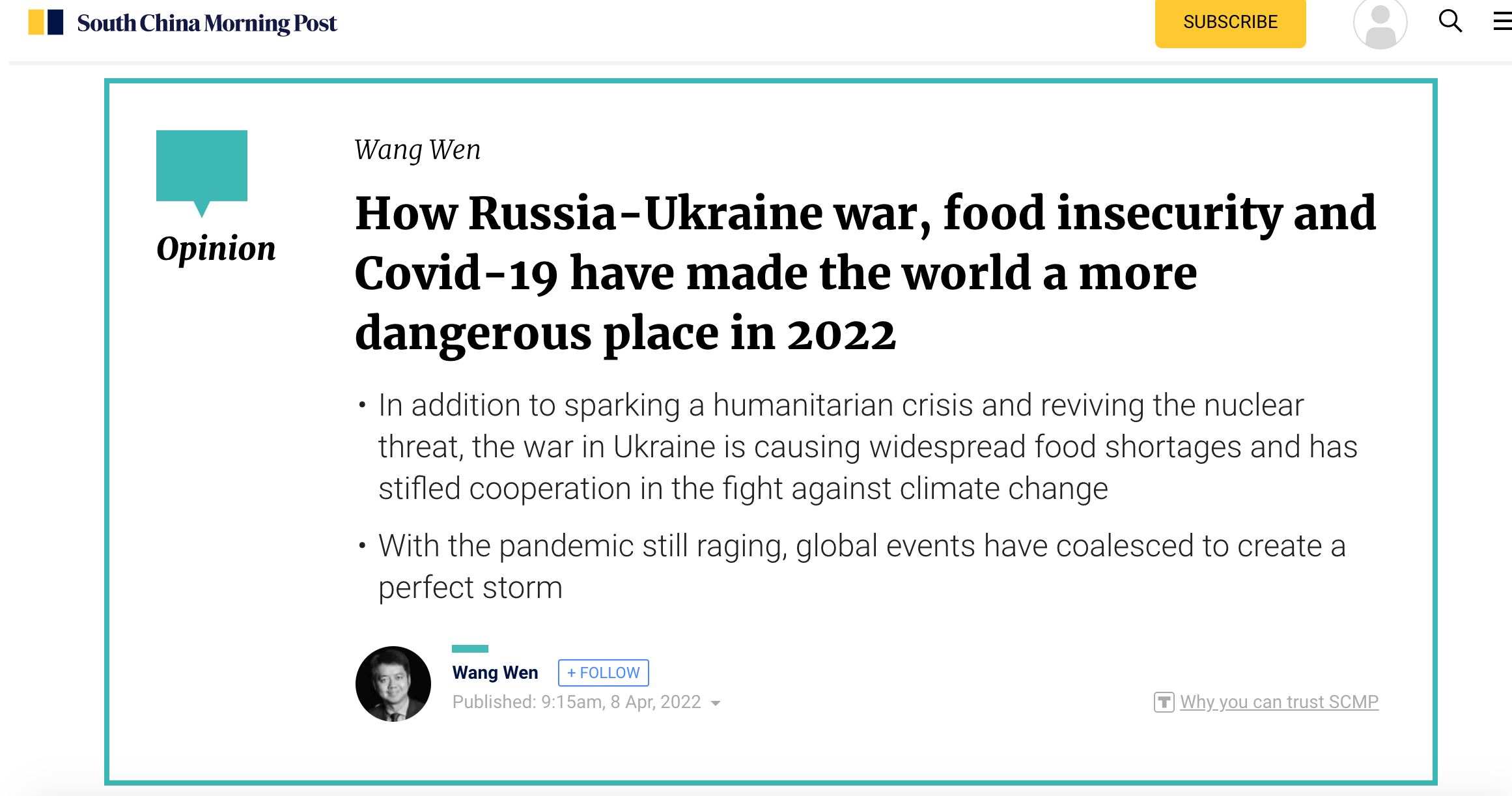
Wang Wen: How Russia-Ukraine war, food insecurity and Covid-19 have made the world a more dangerous place in 2022
The Russian Ukrainian conflict has entered a protracted war, which is the main reason why the world has become more dangerous. On April 1, the Ukrainian army launched its first raid on Russia, which means that the Russian Ukrainian conflict has entered the stage of counter attack.
2022-04-08 -
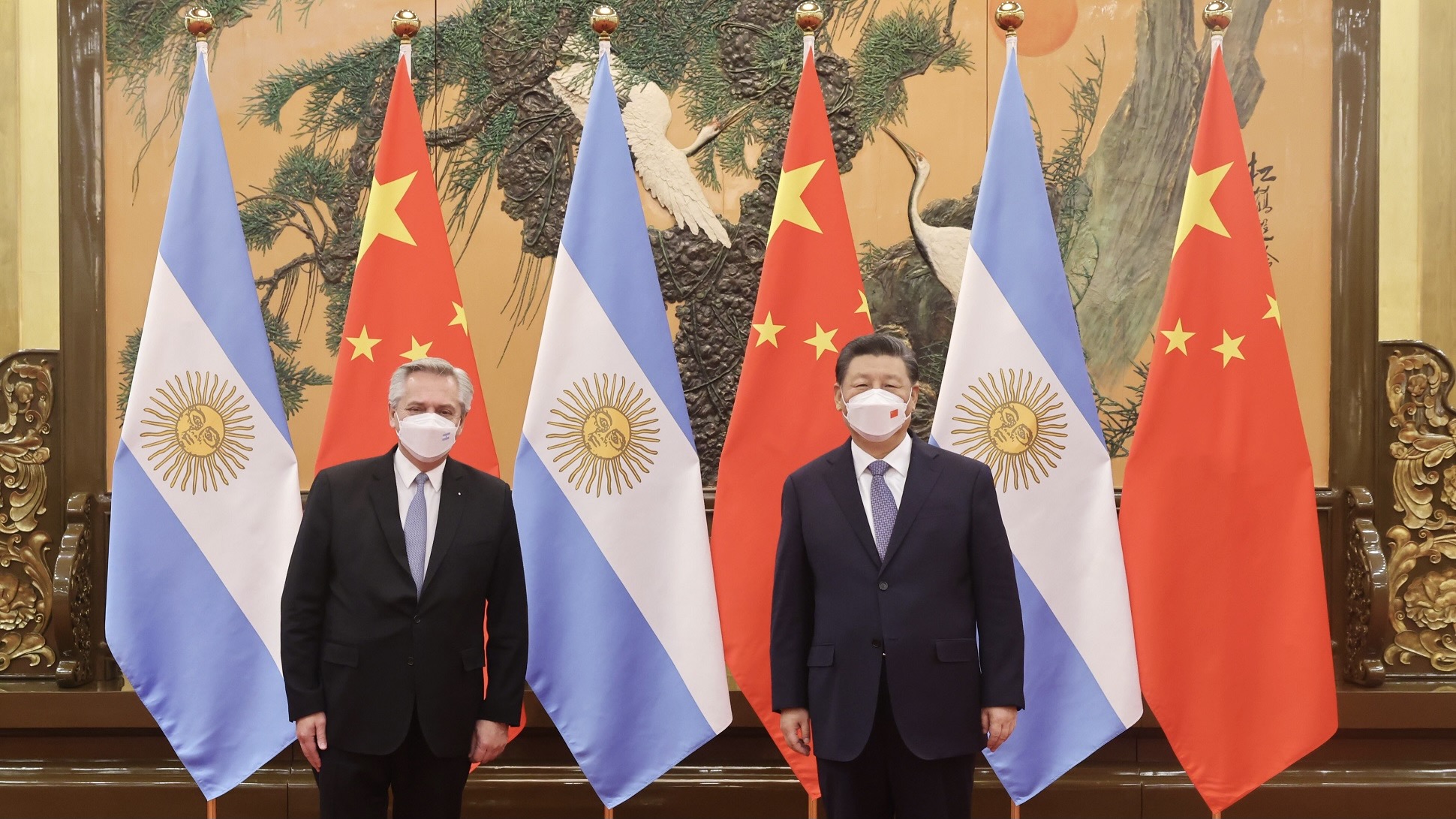
Marco Fernandes: Washington watches as China and Latin America deepen their ties
2022-04-08 -
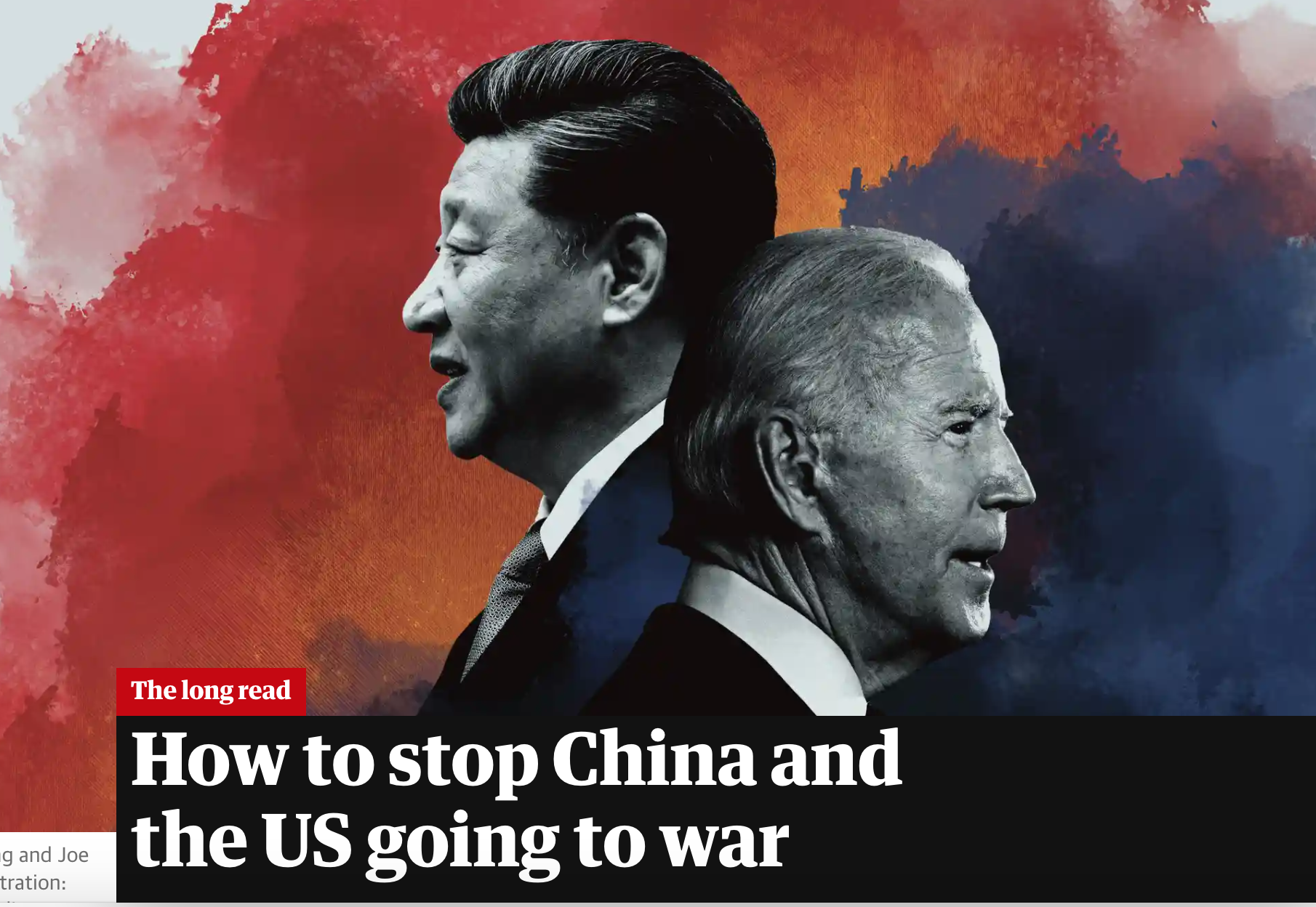
Kevin Rudd: How to stop China and the US going to war
As images of destruction and death emerge from Ukraine, and refugees flee the country in their millions, the world’s attention is rightly focused on the horror of what many once thought an impossibility in the 21st century: a large-scale modern war in Europe. In this grim moment, however, it is all the more important to think through and coldly reassess the dangers presented by other potential conflicts that could be sparked by growing geopolitical tensions. The most significant among these is the risk of a war between the United States and China. The salutary lesson of our time is that this scenario is no longer unthinkable.
2022-04-08 -
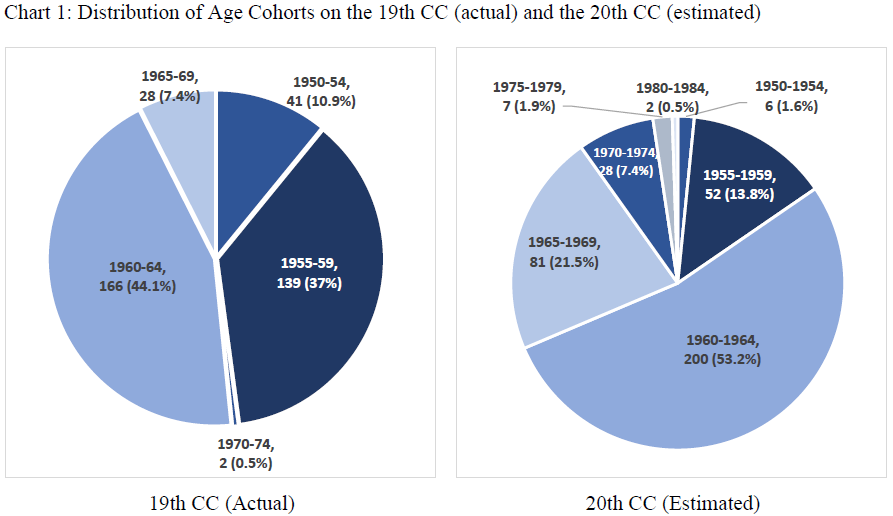
Cheng Li: Predominance: The Post-1960s Generation in the Aftermath of the 20th Party Congress
If the 19th Congress of the Chinese Communist Party (CCP) in 2017 presented the coming-of-age of the post-1960s generation (6G) at the ministerial and provincial levels of the Chinese leadership, the forthcoming 20th Party Congress will witness the rise to predominance of this age cohort in the top national leadership. Although Xi Jinping and a few other post-1950s generation (5G) leaders will remain in a few top positions, the post-1960s age cohort is expected to become a majority of the 25-member Politburo and other prominent leadership bodies.
2022-04-08 -
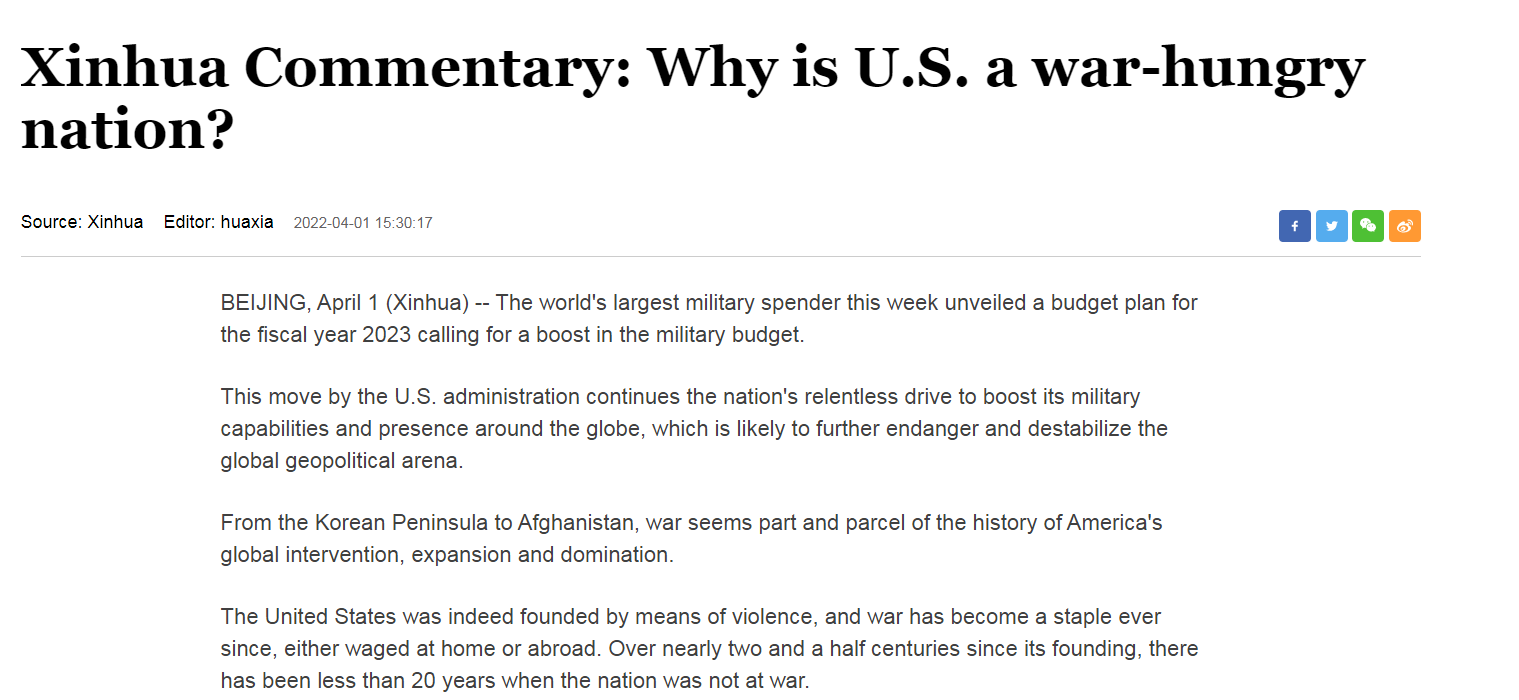
Martin Jacques: Why is U.S. a war-hungry nation?
The world's largest military spender this week unveiled a budget plan for the fiscal year 2023 calling for a boost in the military budget.
2022-04-07 -
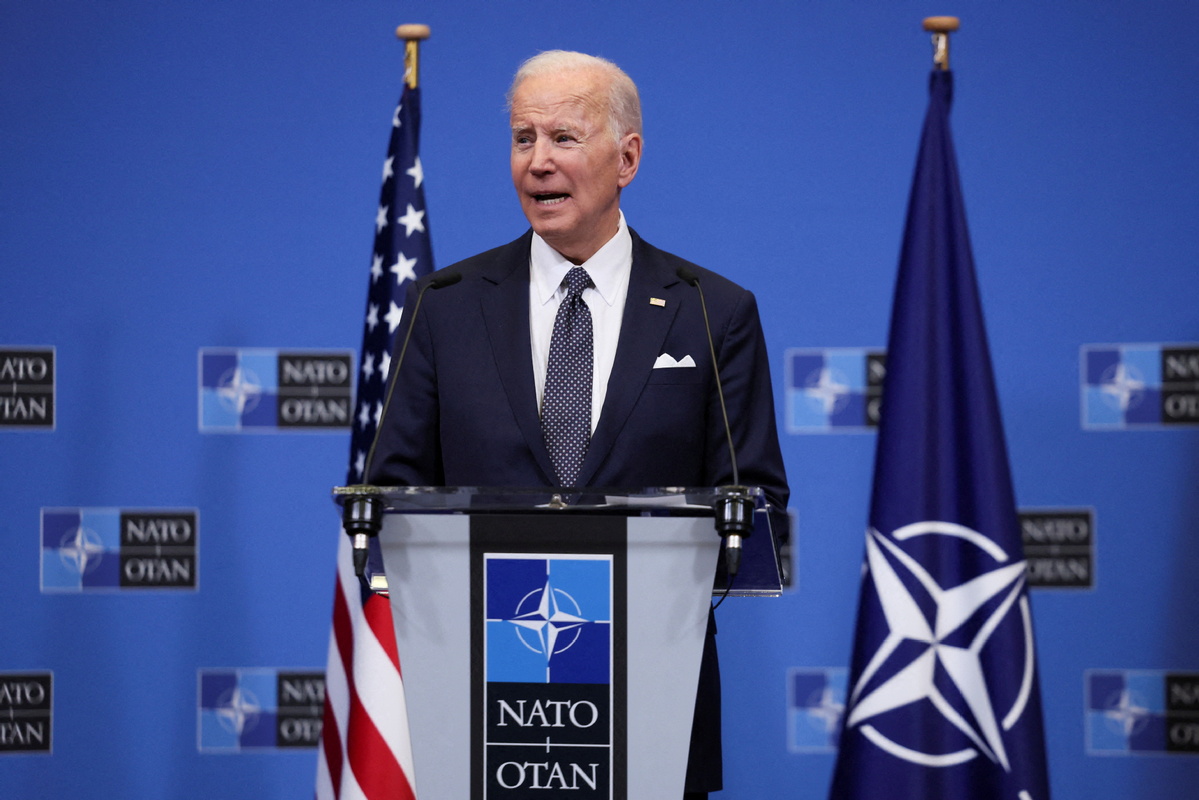
Martin Jacques: Biden pushes Europeans on Russia action
US President Joe Biden was busy in Brussels with three summits on Thursday in which he was seeking to rally European allies for more economic action against Russia, but observers believe that a steeper escalation will only make the European Union poorer and weaker.
2022-04-07 -

Zamir Ahmed Awan: Pakistan under political turmoil!
According to the Washington Post dated 23 December 2016, the U.S. tried to change other countries’ governments 72 times during the Cold War. According to one study, the U.S. performed at least 81 overt and covert known interventions in foreign elections during the period 1946–2000. Another study found that the U.S. engaged in 64 covert and six overt attempts at regime change during the Cold War. After the disintegration of the former USSR, the US emerged as the sole superpower in the unipolar world. Its role in the change of regimens around the globe has intensified exponentially.
2022-04-07 -
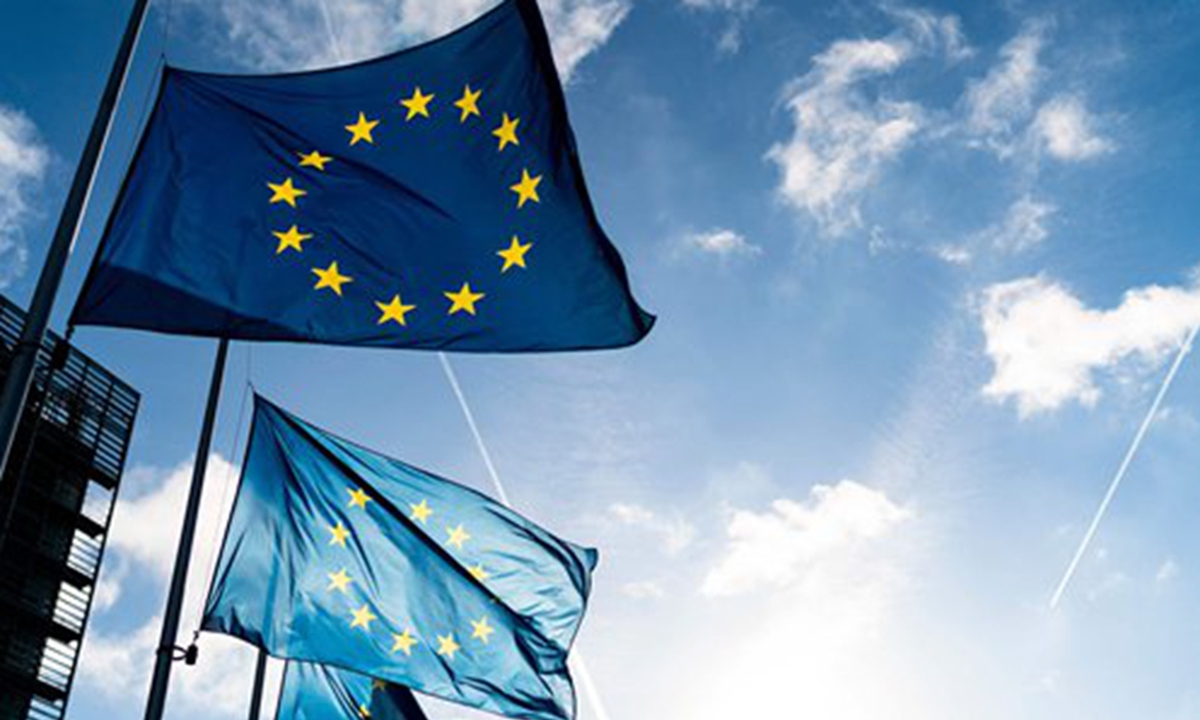
Ding Gang: Why European integration failed to eliminate war
In 1995, Sweden became a member of the European Union. A Swedish scholar I interviewed at the time told me that if I had asked him then, "What's your nationality?" He would have said without hesitation, "I am Swedish." But after joining the EU, Swedes face a problem of identity transition. He wondered how long it would be before Swedes, when asked this question, would first answer that they were "European."
2022-04-07 -
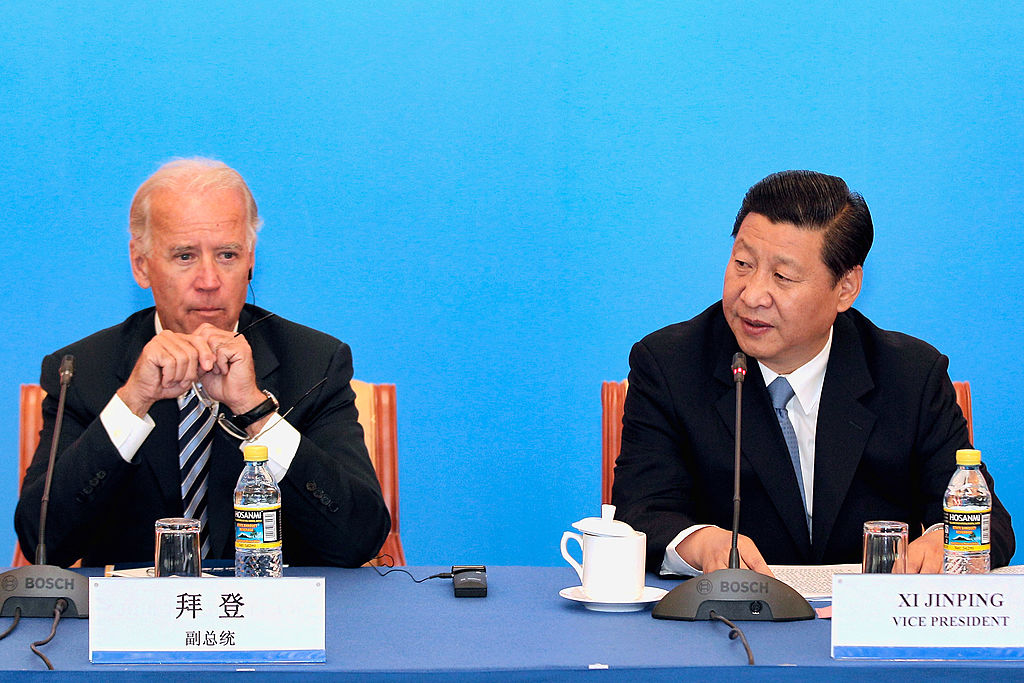
Kevin Rudd: A U.S.-China War Would Dwarf the Destruction in Ukraine. Both Sides Must Act Now to Avoid It
The world’s attention is rightly focused on the unfolding horror in Ukraine. Images of destruction and death wrought across that nation, and the harrowing experiences of refugees fleeing in their millions, testify to the tragic reality of war. And in the capitals of Europe, something once thought an impossibility—a large-scale 21st century war on the continent—has now become all too real, awakening once idealistic nations to the hard truth that such senselessness violence has not been eliminated from our modern, globalized world.
2022-04-07 -
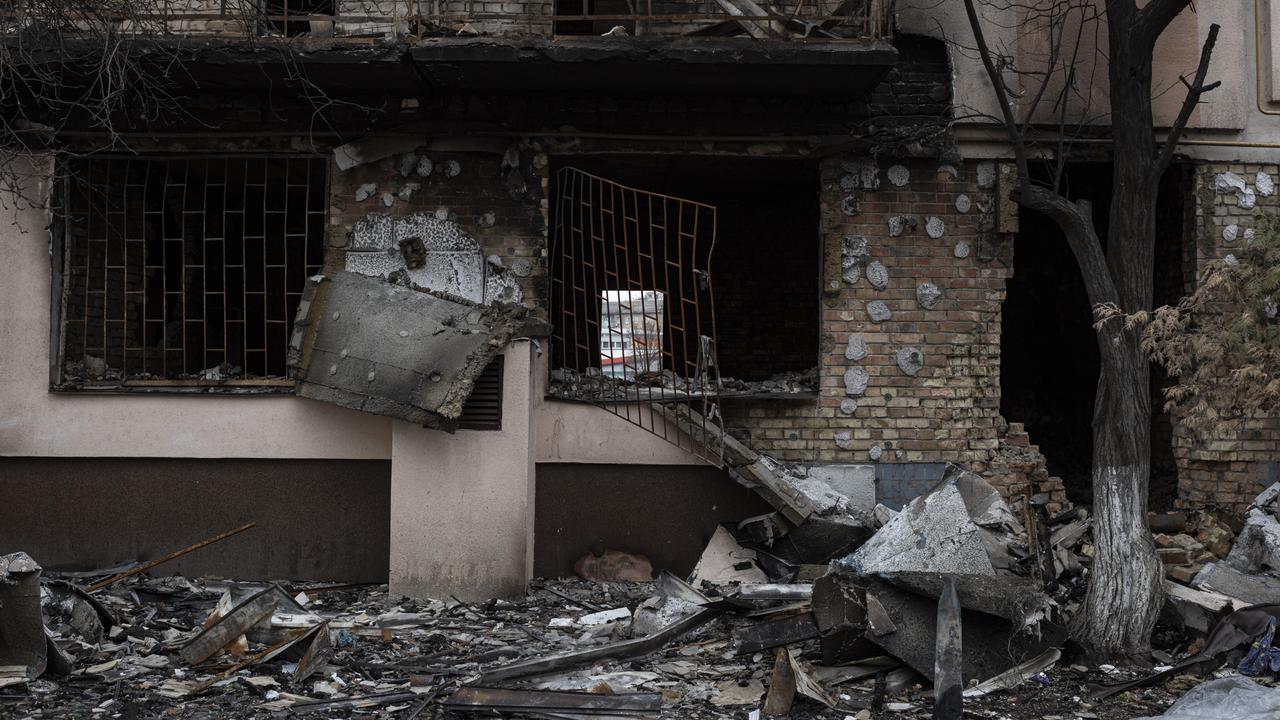
Wang Yiwei: China’s extraordinary claim about Russian invasion
China has claimed sanctions imposed on Russia are part of a US ‘playbook’ which see western countries benefit from the continued war in Ukraine.
2022-04-07 -
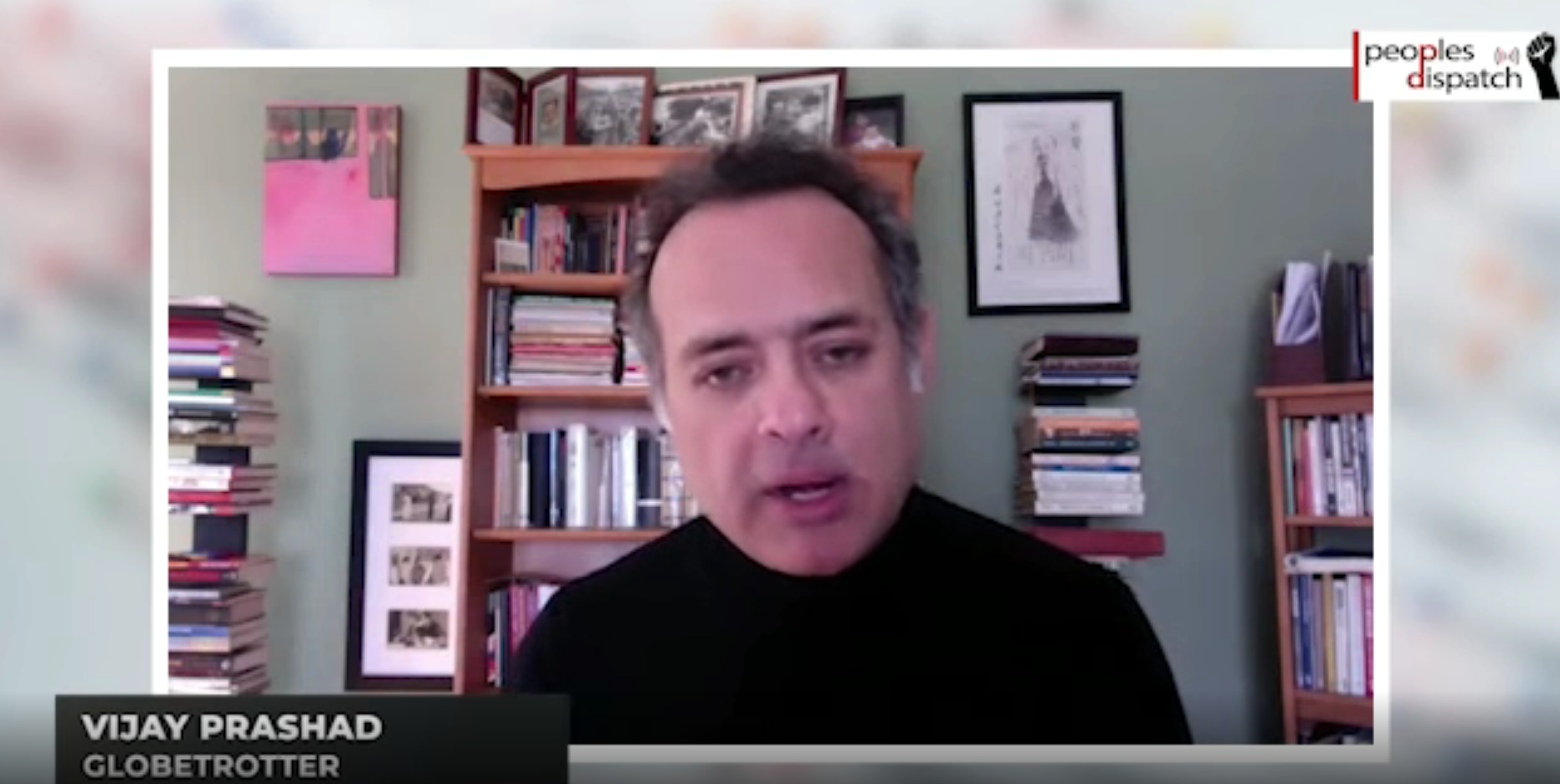
Vijay Prashad: Why is NATO even a thing?
Vijay Prashad talks about the historic role played by NATO as a tool of US strategy. He explains the context in which it was founded, its expansion in Europe that escalated tensions, and its larger orientation against Russia and China.
2022-04-07 -
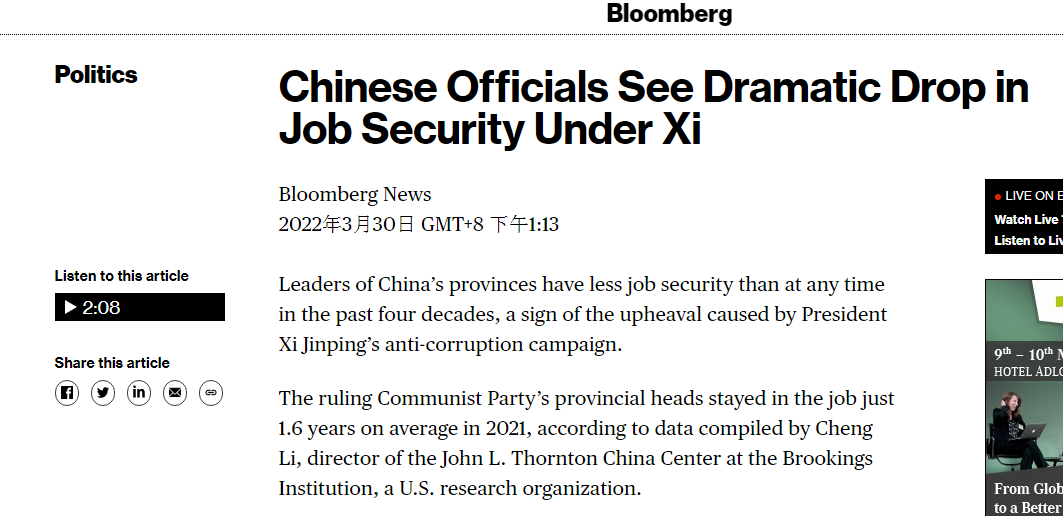
Cheng Li: Chinese Officials See Dramatic Drop in Job Security Under Xi
2022-04-06 -
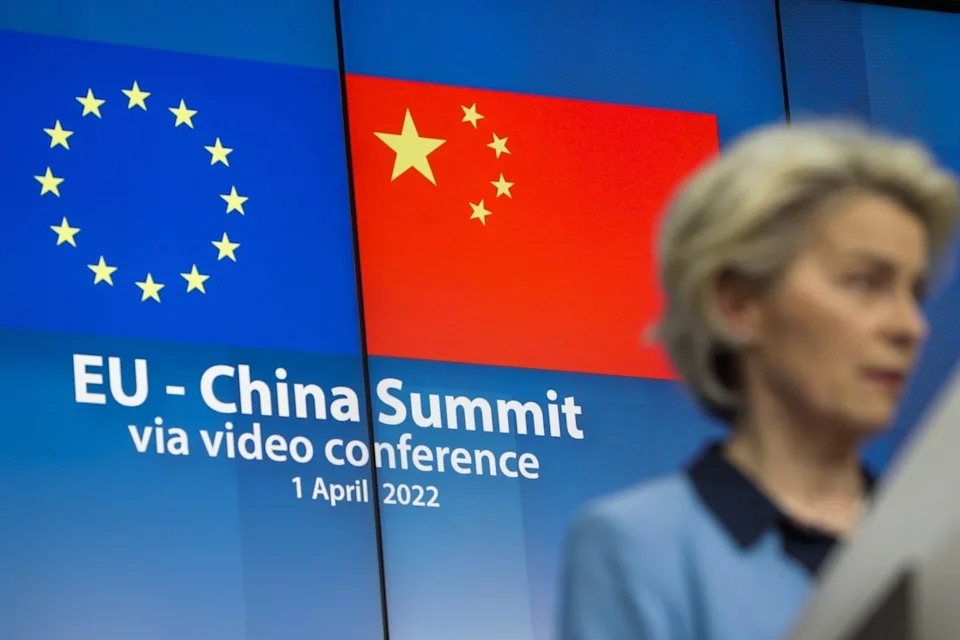
China’s stance on Russia’s war in Ukraine unlikely to have major effect on Asia trade ties
While China’s stance on Russia’s invasion of Ukraine remains a lightning rod for debate around the world, analysts in Asia say the region’s economic dependence on the world’s No 2 economy is too huge to crumble amid the geopolitical rifts caused by the war.
2022-04-06 -
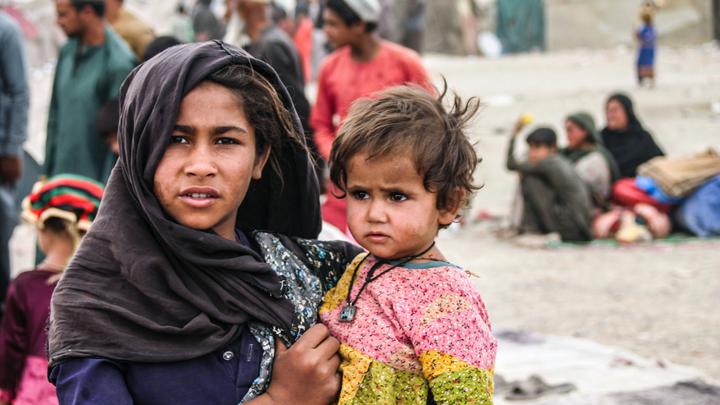
Zamir Ahmed Awan: China contributes to the over-come Afghan crisis
Afghanistan suffered war an imposed war and the nation was victimized for almost four decades. There is a severe sense of responsibility in the international community to end the suffering of Afghans. Especially the neighboring countries have taken few initiatives. One of the most effective initiatives is led by China.
2022-04-06
























































































 京公网安备 11010802037854号
京公网安备 11010802037854号





